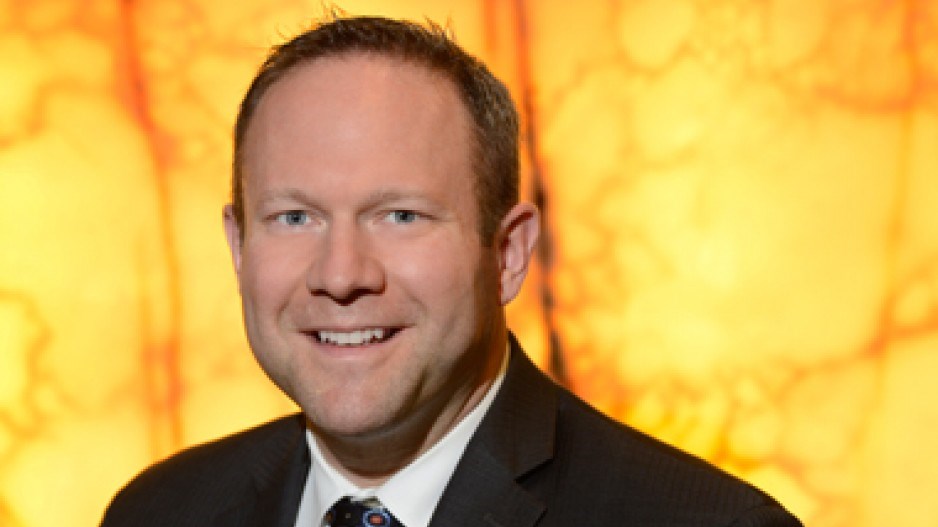On March 11, 2011, an earthquake about 130 kilometres off the shores of Sendai, Japan, produced a 15-metre tsunami that disabled the power supply in three Fukushima reactors.
The resulting core meltdowns in all three facilities released high levels of radioactivity – and generated some seriously bad PR for the uranium sector.
When Jim Paterson, CEO and director of Kivalliq Energy Corp. (TSX-V;KIV), heard about the disaster, he was unconcerned. Why would an earthquake off the coast of Japan have any effect on a Vancouver-based uranium exploration company?
He was about to find out.
"By the weekend, I knew more about the Japanese nuclear-reactor business than anyone should have to know in their entire lifetime, because evidently it was going to affect us," he recalled.
"Monday morning, things got really ugly in our entire sector."
He said that over the following week companies all across the sector lost between 75% and 80% of their value over what he deems an emotional response based on fear and misinformation.
Uranium didn't have a squeaky-clean image prior to Japan's tsunami incident.
Many misconceptions exist in the marketplace, said Paterson, and investors in the sector consequently tend to be logical, pragmatic and informed.
They're patient and have time horizons of several years, persevering through "the emotion that people bring to cocktail parties about uranium."
Perseverance has been a recurring theme throughout Paterson's career.
When he decided in 1997, in his early 20s, that he wanted to work in the mining business, he reached out to Alan Lindsay at Azco Mining, who initially wouldn't return his call.
"I called him 20 times and, on the 20th time, his receptionist finally put me through to him and he said, 'You are so annoying and persistent that you should come work for me.' And that was my first job in the mining sector."
He started out in investor relations with the U.S.-based copper-development company, and learned the ropes as he went along.
He was given a lot of freedom and independence during his three years with the organization.
"It was good because I was able to master my own destiny within that office.
"I was one of the only young people in the business at the time because it was not a business that was overflowing with easy money; so it was a tough gig.
"They just sort of let me run."
Paterson has been with Kivalliq since its 2008 inception as a Kaminak Gold Corp. (TSX-V:KAM) spinoff, and he became CEO in October 2010.
Since then, he has refused to stop pushing the company forward; he is careful to heed the words of his mentor, John Robins, chairman of the Aurora Resource Group (which includes Kivalliq), "Don't say 'whoa' in a tight spot" – keep forward momentum, particularly when times are challenging.
This philosophy was put to the test in the last few years when Paterson was in discussions with a potential investor who he sensed was on the verge of refusing to get on board.
"I wouldn't allow them to verbalize the word 'no,'" he recalled.
"I smiled and yelled, 'Don't say no! Don't say no! Whatever you do, don't use those words!'
"It was enough to break the tension and potentially the spell that they wanted to say no."
Kivalliq got the investor on board.
Robins has always been impressed by Paterson's tenacity.
"The mining industry right now is going through some extremely challenging times, especially the junior mining space, and Jim, being the CEO of a uranium company in the junior mining space, is probably the most difficult job a person could have right now in our industry," said Robins.
"In our business, when times are tough, a lot of guys give up. They lose their drive. With Jim, the tougher it gets, the more he refuses to give in, allowing him to become very successful in our industry."
Despite the difficulties in the sector, Kivalliq has raised $35 million for exploration since Fukushima and has continued to increase the pace of exploration.
"We drilled 1,500 metres in 2009, in 2010 we drilled 16,000, and we've drilled over 80,000 metres since then," he said. "It's an impressive number if you look at other companies in our space."
Paterson said a growing world population spells a bright future for uranium as energy demand continues to rise.
Again, however, he points out that the timeline isn't short.
"As far as an industry goes, it goes up and down, but we're going to have a good run with it still."
Paterson is no longer the new kid on the block but, at 40, he's young to have reached his level in Vancouver's tightly knit mining community.
Although he's quick to point out that he isn't discounting what he's done, Paterson said he got to where he is by simply refusing to let go.
"If you can stay in long enough, you gain credibility and respect through your peers, who are all kind of focused in our seven-block radius. They'll know who you are after a while, and you'll get lots of opportunities because of that."
Paterson attributes his adventurous spirit to his parents, who encouraged him to try anything he wanted, "whatever the outcome."
He also gives credit to his wife of 11 years, Maureen, with whom he has two children, for supporting him through the challenges he faces during the day.
"My wife is awesome," he said. "Whenever I do get overconfident, I'm brought back to earth pretty quickly.
"By her or my kids."




